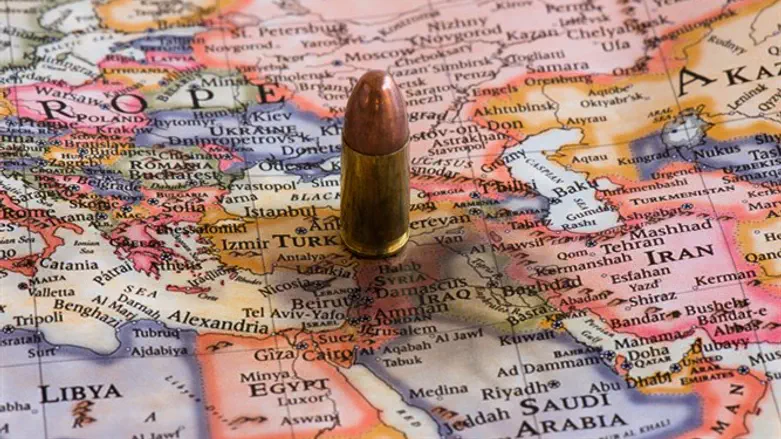
A former commander of Jordan's Special Forces and former deputy chief of staff of Jordan's armed forces Retired General Mousa al-Odwan says sending Jordanian ground forces inside Syria would have dire consequences for Jordan's stability and national security, AlJazeera reports. Jordan's interests would be better served by keeping a defensive-offensive posture on the Syrian borders.
"We should not intervene in the Syrian conflict unless there is a clear and present terrorist threat to our national security," said Odwan.
Odwan prefers using special forces in pre-emptive strike capacity inside Syria to neutralize "terrorist" threats, and opposes sending Jordanian ground forces into Syria even as part of a larger international alliance.
On Sunday, US and Jordanian troops launched a major annual military training event, "one of U.S. Central Command's premier exercises", called Eager Lion, with the participation of more than 20 nations. The exercise, which takes place in multiple locations in Jordan, is in its seventh year and is led by forces from the US Central Command where the Middle East is its area of responsibility.
About 7,400 military personnel, including representatives from Centcom headquarters and its air, land and maritime components will support the exercise scheduled for May 15-24, according to a U.S. Central Command news release.
This year's exercise comes amid reports suggesting a possible joint American, British, and Jordanian military intervention in Syria as part of President Trump's strategy to roll back ISIS.
Jordan has been part of the US strategy for Syria which focused on containing the conflict as a low-intensity war to prevent it from spilling over to neighboring countries ever since the start of the Syrian crisis in 2011.
Jordan is also a member of a US-led alliance to defeat ISIS using its own air force to bomb targets inside Iraq.
Odwan downplayed any connection between the Eager Lion exercise and the Syrian conflict arguing that it was important for the Jordanian armed forces to get exposed to foreign militaries and train with them.
Similarly, political analyst Adnan Abu Odeh pointed out that the Jordanian public misunderstood media reports that gave the impression that something was about to happen on the Jordan-Syria borders, according to AlJazeera.
"Jordanians linked the timing of Eager Lion exercise with King Abdullah's interview in The Washington Post last month during which he said that Jordan will defend itself if attacked by terrorists coming from the Syrian territory," said Abu Odeh, who was Chief of Royal Court during the reign of King Hussein.
On Sunday, Syrian Foreign Minister Walid al-Moallem was quoted in the official Syrian news agency warning Jordan that any presence of its troops inside Syrian territory without prior coordination with the Syrian government will be dealt with as hostile forces. "If the Jordanian forces entered without coordination with the Syrian government they will be considered as hostile forces."
During a meeting with Jordanian journalists in Amman late April, King Abdullah II stressed Jordan's commitment to the peaceful end to war in Syria while keeping Jordan's military in a defensive posture.
The king also stressed that Jordan was ready to deal with any threats coming from the Syrian side of the borders. "We will not allow the developments in Syria to pose threats to Jordan. We are continuing with our policy of deep defence without the need to have the Jordanian army involved inside the Syrian territories."
Commenting on Moallem's warning to Jordan, Jordanian political commentator Khaled al Majali told AlJazeera that he understands the Syrian position as "logical" and "within the Syrian government rights".
"Any government is within its mandate to oppose the presence of foreign troops inside its territories without a request or coordination with it." However, Majali, who like many Jordanians is against the regime of Bashar al-Assad, opposed any Jordanian intervention inside Syria because it would have dire consequences for Jordan's stability and national security.
"Jordan should never send any forces to fight inside Syria because this will end up wrecking Jordan's military establishment. Moreover, Jordan is incapable of and should not be fighting a long, protracted foreign civil war on behalf of the Americans or the Russians," he said.
Majali said that any ground troops' intervention in Syria would not be popular with Jordanians. "Jordanian citizens will not support any policy that requires the sending of our troops to Syria. This isn't as if the Jordanian army will be marching off to liberate Jerusalem."